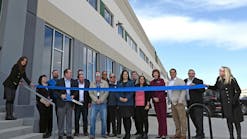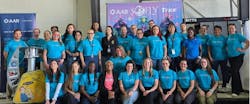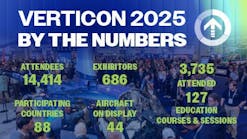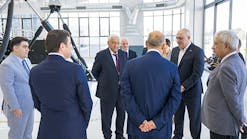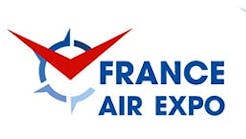Almost everything changes. This is not unique to our time in 2019. It is however, the nature of change that becomes more significant. There’s currently a great deal of discussion about the workforce and the future of the workforce in our industry. This includes a plethora of ideas regarding workforce development and the current industry shortage. Unequivocally, this is an important topic. We need to ensure we discuss what that future workforce should look like.
One of the issues we need to consider is, “what will jobs look like in the not too distant future?” We cannot assume the jobs will be the same as what we currently see in our industry. In business and general aviation today, our traditional job functions are shifting and changing. These changes are profound. For example, take an aircraft technician’s job — it is not at all what it looked like 10 years ago. Aircraft is evolving rapidly and the technology driving this evolution is moving at the fastest pace we have ever witnessed. These changes can also be seen in our aircraft user and operator world, which is impacting expectations for our industry and our job functions.
Imagine, you are a 14-year-old kid who is maybe thinking about the future and asking, “what do I want to be when I grow up?” Perhaps you like the idea of aircraft and flying. Over time, you start getting more interested in aviation. If you look at the current traditional job functions and work opportunities, you’ll see that you need to gain a lot of experience and build time in the industry, most of it hands on. The educational and learning part of becoming a pilot or an aircraft technician is a long road. And with this ever-changing environment, we can expect the education and learning process to evolve.
As a 14-year-old, it is likely that you have an interest in drones and unmanned equipment of all sorts. We are starting to see self-driving cars all over the place (I was in one a couple weeks ago and all I can say is wow, they are here, and they are great). Technology in this arena is on a very steep climb, changing and improving every day. Business vitality of unmanned flying is advancing and could soon be engulfing all facets or our lives. Now, as a 14-year-old, why would you want to pick a traditional path of becoming an aircraft mechanic or a pilot?
As an industry, we need to attract new and younger talent and consider that this new, young talent may see themselves moving in the direction and arena of what is coming and not what was. Let’s acknowledge the impact of all these incredible changes in our industry and invite and encourage the future generation, as well as our current industry workforce, to embrace these incredible opportunities. We must recognize the pilot role in the future may be completely different from what we currently know.
Instead, the pilot may become an aircraft operator who never has to go anywhere! This is a mind-boggling paradigm shift! Additionally, the aircraft technician role may become one of an aircraft manager, who travels with the aircraft more than the pilots do. In this new role, the aircraft manager’s job may be to monitor the aircraft, make sure it is operating correctly and address any technical malfunctions. The aircraft manager may also manage, host, and take care of passengers. The traditional jobs that we currently know could look and feel completely different in the future. Ask yourself, “are we taking the inevitable changes to our industry into account when we are encouraging the future workforce to follow an aviation and aerospace career?”
Another part of the aviation and aerospace world is the ancillary jobs and work functions. We need to make sure we view and present these as great opportunities. More service-minded positions could develop. Technical support analysts and troubleshooting may take on a whole new meaning as technology continues to grow and evolve.
One of the outcomes of the advances in technology will be more choices in how to do things and what directions to follow. This could mean more jobs to help us select the best choice for any situation. Imagine as an aircraft user, having so many choices and aviation solutions that you need an aviation advisor to help you weave through the decisions of flying. The point is, today, a large portion of our industry’s jobs are not isolated to piloting and aircraft maintenance. There are more leadership, managerial, and administrative jobs functions and many more supporting, technical, and engineering jobs. These positions are splintering into various directions and represent a great deal of new opportunities for the future workforce. As technology continues to change, improve, and evolve, future jobs will become more and more focused on people management and service.
We would be remiss not to mention artificial intelligence (AI). It’s coming, and it will impact us. The customer service of the future will be very different from today; sales jobs will continue to move toward consultation selling. Problem solving will take on a whole new dimension.
Yes, we should absolutely reflect upon our achievements, while remaining cognizant about the future of aviation and where we are headed. If we are to attract the next generation of talented aviators, we need to continue painting a realistic vision of the future. This will help ensure we attract the enthusiasm for the future of aviation and specifically, business and general aviation.
Want to learn more about the future of the aircraft technician? I will be a keynote presenter followed by a breakout session at the 2019 NBAA Maintenance Conference, May 7 – 9 in Fort Worth, TX.
• Part One: Tuesday, May 7, 2019, 8:40 a.m. – 10:00 a.m.
• Part Two: Wednesday, May 8, 2019, 1:30 p.m. – 3:00 p.m.


